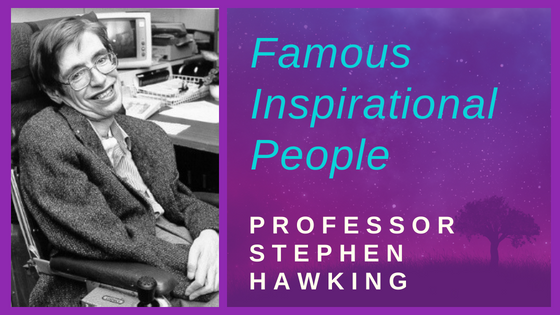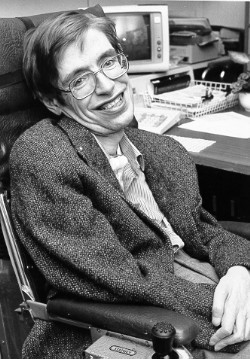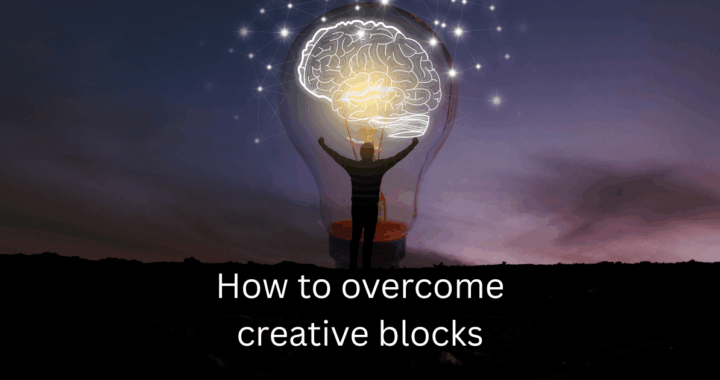In this series, we are looking at the life and works of some of the world’s most famous inspirational people and trying to discover a bit more about what made or makes them tick and the lessons we can take from them to help us live our own lives in a more fulfilling way.
STEPHEN HAWKING – A LIFE LIVED TO THE FULL
If you ask a school child nowadays to name a well-known scientist, chances are you will be given one of 3 names:- Isaac Newton
- Albert Einstein
- Stephen Hawking
You may get a few other random names coming up but I wouldn’t be surprised if these were the most popular scientists of all time. Each, in their own way has turned the way we view the world on its head:
- Newton for studying the laws of mechanics and introducing the world to the concept of gravity and his 3 famous laws of motion
- Einstein for his theory or relativity and special relativity (and for dashing the hopes of every sci-fi fan by suggesting that it was impossible to jump to ‘light speed’, let alone ‘warp speed’!)
- And Stephen Hawking, for blinding us all with science in A Brief History of Time and for his insights on space-time and especially black holes.
A brief history of Professor Hawking
Stephen Hawking was born in Oxford, UK on 8 January 1942 and died on March 14th 2018 in Cambridge, UK at the age of 76. During that time he went to University College, Oxford and in 1962 he began studying and researching cosmology at the University of Cambridge in the Department of Applied Mathematics and Theoretical Physics (DAMTP). There were few other researchers in that field at the time and he progressed quickly gaining his PhD in 1965.
He continued his work on the cosmos, expanding universes and space-time over the next 10 years and in 1975, he became a Reader in Gravitational Physics at DAMTP (1975), and in 1977 gained a promotion to become Professor of Gravitational Physics.
During this time, he was supported by this first wife, Jane Wilde, whom he married in 1965 and with whom he had 3 children. His marriage lasted 30 years and spanned the time when his health deteriorated.
When he was only 21, Hawking was diagnosed with a rare type of motor neurone disease and doctors gave him 2 years to live. Obviously he lived a lot longer than that – another 55 years in fact, but the disease gradually paralysed him until he became unable to move.
For many years he was wheelchair dependent, finally only being able to communicate by using a specially-adapted machine that translated the movements of a muscle in his cheek. Due to his successful academic and writing career, Hawking’s iconic chair and computerised voice also made him a household name, and he even appeared on episodes of “The Simpsons” and classic British comedy in “Little Britain”.
There is a wonderful film called “The Theory Of Everything” which covers some of the life of Stephen Hawking and his first wife, their relationship and their struggle to live with his disability. Not only is it superbly acted but it shows the tenacity of the characters to live life on their own terms. I urge you to see it – I guarantee it will touch your soul.
So what did I learn from Stephen Hawking?
When I learned the news that the world had lost one of its foremost scientific brains, I was saddened by the loss of this iconic British hero. Tributes poured in from all over the world with academics, political leaders and celebrities paying homage and celebrating the life and work of one of the UK’s most famous contemporary people.
But what was it about Professor Hawking that a very outwardly ‘creative’ kind of person like myself, found so inspirational about such an academic and scientific figure?
Inspirations a plenty
Firstly, although I love my performing arts, I am also a very academic and scientific person too. I took A’ levels in Physics, Applied and Pure Maths and I still have a fascination for both subjects which I feed whenever I can. I love reading about theoretical physics and am intensely interested in the current search for a unified ‘theory of everything’ – a way of describing the universe fully.
I’m not sure we will ever get there because I believe the universe is always changing and expanding so what might seem correct from one perspective, will almost by necessity, be different from a different perspective.
But nevertheless, I get excited when science, philosophy and spirituality appear to be on the same page although I don’t claim to always be able to follow the developments of quarks, string theory and bosuns, I do so love to give it a go! 🙂
What I find interesting is that when I think about what I learned from Professor Hawking, it was not in the realms of Hawking’s radiation, black holes and space-time, (although these are interesting); but things on a much more human, personal level about the tenacity of the human spirit, the dedication to never give up and the feeling that we should be having fun, whatever our situation in life.

So in appreciation for the live he lived, I’ve listed my favourite inspirations below:
1) Never give up! Never give up and lastly, NEVER GIVE UP!
I believe that there is ALWAYS a solution to every problem if you have the right determination and are prepared to look hard enough to find it. I also believe that Professor Hawking had this attitude in bucket loads and when people told him he couldn’t do something, I think he went out of his way to prove them wrong and find a way himself.
“Never give up” was one of the many quotes that are attributed to him and it is clear that given his disability and circumstances, that he not only said this, but lived his life by its mantra too. I wonder how many of us would have achieved so much after being told at 21 that we only had 2 years to live. It is a testament to his determination that we can celebrate such a rich and prolific life today.
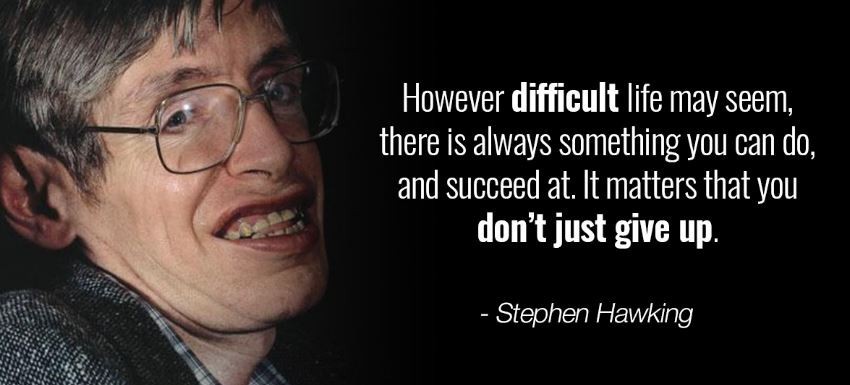
2) Don’t let yourself be determined by labels that other people give you.
Many of us find comfort in being given a label that we can hide behind – we may say we are allergic, or short-sighted, or dyslexic or have a heart condition, or a skin condition or big-bones! But remember that a label is only something that other people have agreed about you. Whether you choose to subscribe and adhere to that label or not is entirely up to you.
Sometimes we like the labels we give ourselves because it makes us feel like we belong and gives us something to talk about. Other labels give us an excuse for not achieving; or worse, not even attempting things in the first place. This is where believing and accepting labels becomes detrimental to us.
The difference with Professor Hawking was that many people gave him labels, but he choose to see himself in his own way and I think we can all learn something from that.
Not accepting that you have only 2 years to live, or that a disease can limit you, allowed him to break the mould and live a fuller life than many of us even dream of. He experienced zero-gravity, flew to the edge of the world and continued to write and communicate when most of us would have given up because we couldn’t hold a pen.
There was a recent documentary where the comedian and scientist, Dara O’Briain interviewed Professor Hawking about his life and work. The interview took several hours, but because each were able to look past the label of disability, a rapport could be achieved.So next time you tell people about the labels you have adopted about yourself, saying “I am this” or “I have that”, remember that it is your choice whether you let them limit you or not. Why not take some inspiration from Professor Hawking and choose to completely refute them, and define yourself on your own terms?

3) Anyone can inspire a generation, let alone an entire world.
Throughout history individuals have inspired others to great things. We are all inspired by our friends and families, peers, teachers and leaders each day in some small way.
But how amazing would it be to know that you have not only inspired those around you, but have left a legacy of inspiration which will enliven and encourage people across the globe to become better themselves.
 This is one amazing legacy – and his books, lectures and teaching will ensure that this continues into the future – surely that is the true meaning of an ‘eternal life?’ That people will still be takling about Stephen Hawking 500 years from today.
This is one amazing legacy – and his books, lectures and teaching will ensure that this continues into the future – surely that is the true meaning of an ‘eternal life?’ That people will still be takling about Stephen Hawking 500 years from today.
It also doesn’t matter that lots of us struggled to get through “A Brief History of Time” or stopped within the first 10 pages – what we did have was a sparking of our imagination, our curiosity was ignited and we learned something.
I am grateful for this aspect of his work because it sets things up for the future – there will children today who will understand his work, read it, absorb it and build on it, creating even more understanding in the future for the rest of us.
4) “Look up to the stars not down at your feet.”

This is one of my favourite quotes from the great man. Maybe it is because I read many levels into these few words, but I just love it.
There are meanings for me to do with transcending your own physical human limitations, and meanings to do with looking out and expanding your own knowledge and meanings about just being in awe of the universal forces that surround us.
Too many of us get bogged down in the nitty-gritty of daily life that we fail to notice the entirety of where we are or our place in it.
It’s true that when I look up at the stars, I can feel like the most insignificant cog in a vast universe, but if I just stare out at the vastness for a few moments, absorb its energy and let the universe speak to me by accepting it is vastness, then I can see that far from being insignificant, I am at the coal-face, adding to the expansion with my unique perspective and life. Even better that that is when I realise that I have that entire universe behind me, supporting me and wishing me well.
That’s a pretty good reminder for life in my book.
So I am grateful to you Professor Hawking for:
- informing me of things that are beyond my current understand and igniting my love of learning new things
- inspiring me to be a become the best person I can be
- challenging me to examine my own self-imposed limitations and break through them to greater things
- proving that we can define our own destiny
- making my brain work on problems that I still to this day, I can’t solve
- showing me that no matter what circumstances you find yourself in, you don’t need to let this limit you, but you can absolutely use them as a platform for greater things.
I’d call that a pretty amazing legacy.
What will you take from the life and legacy of Professor Stephen Hawking?
Let us know by leaving a comment below.
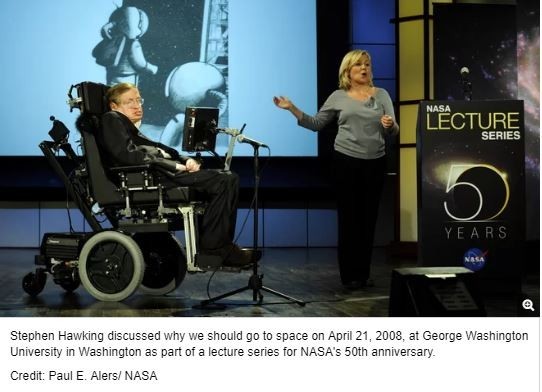
If you liked this, you might like some other things from Stephen Hawking.
Or you can read more by linking to the Professor Stephen Hawking Official Website.
RELATED POSTS
How to make every moment count
The best motivational and spiritual people

